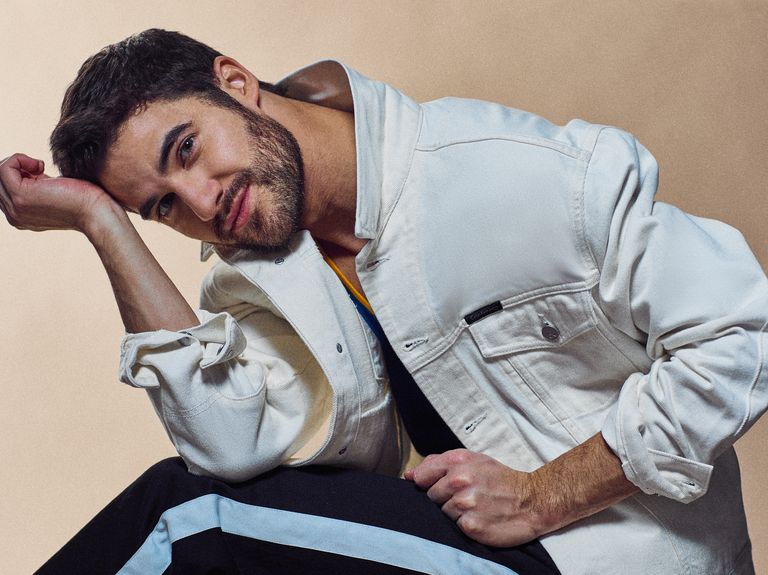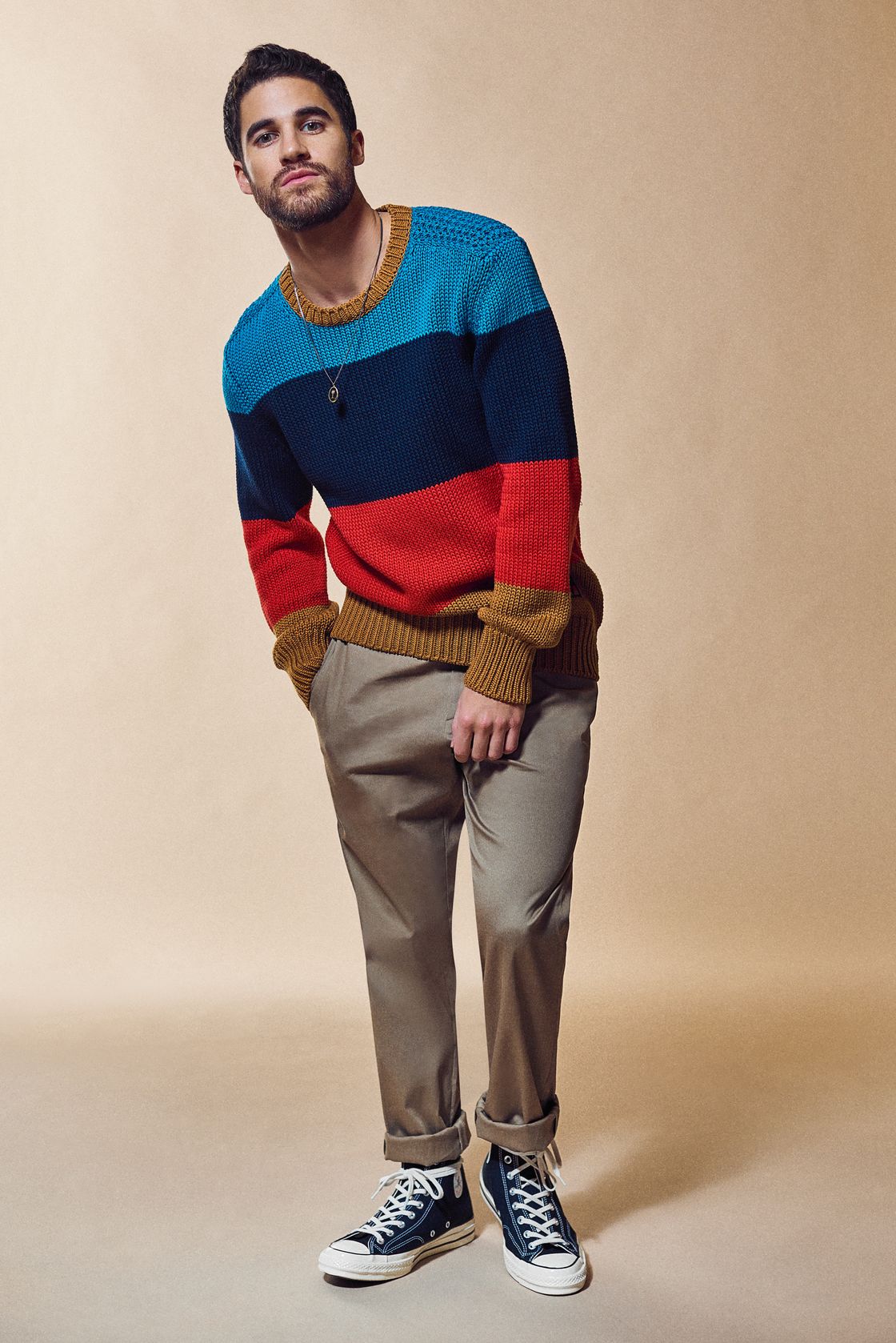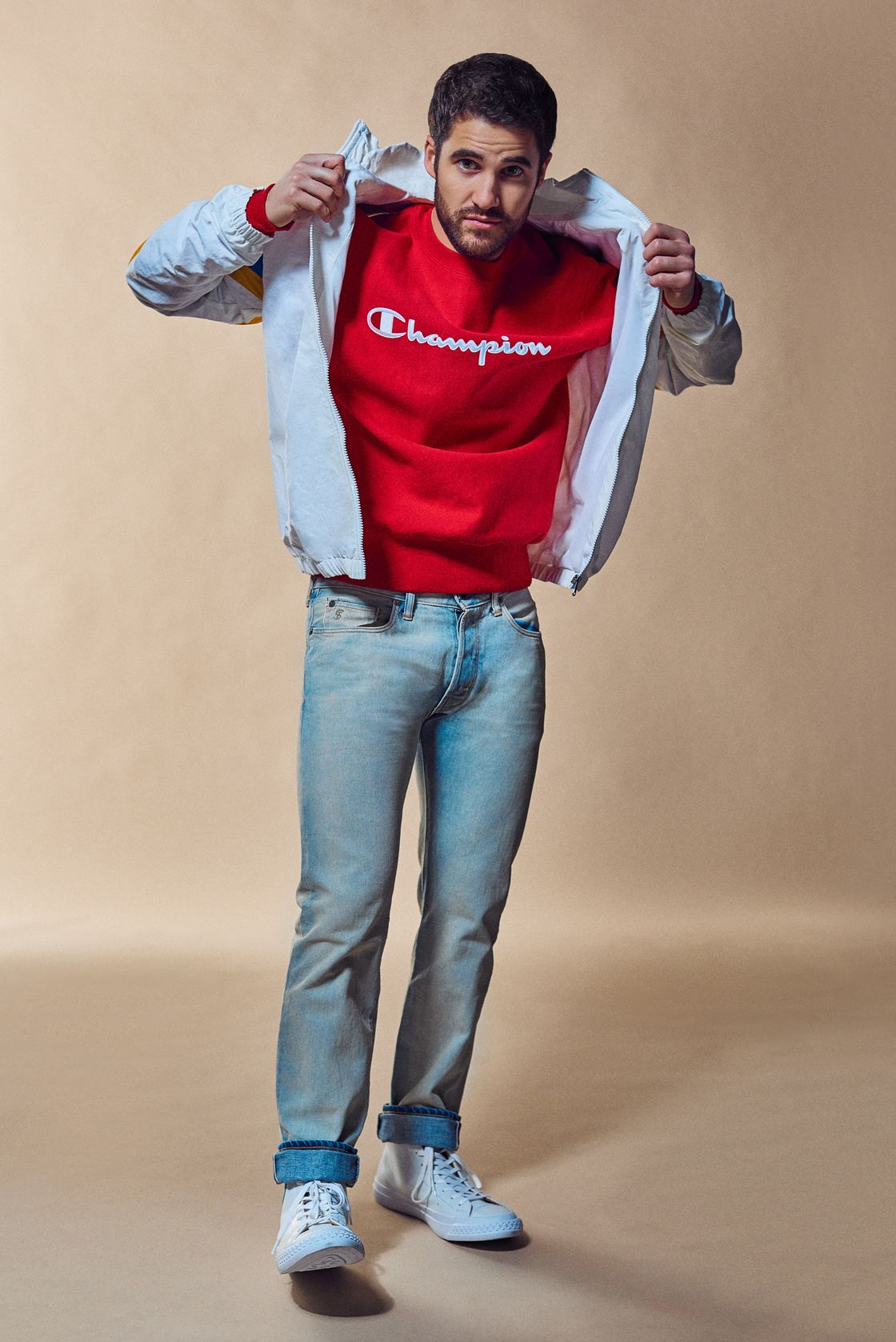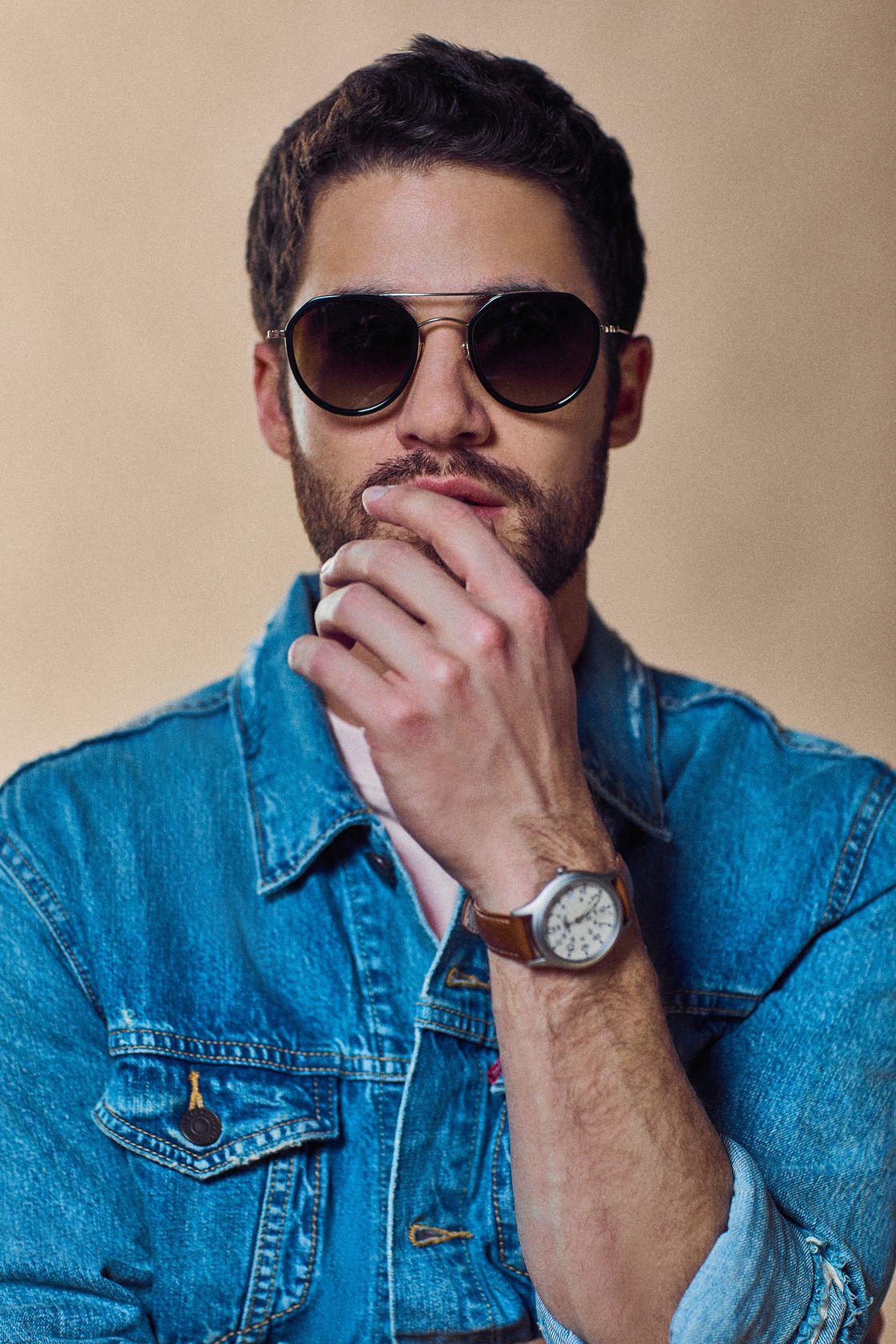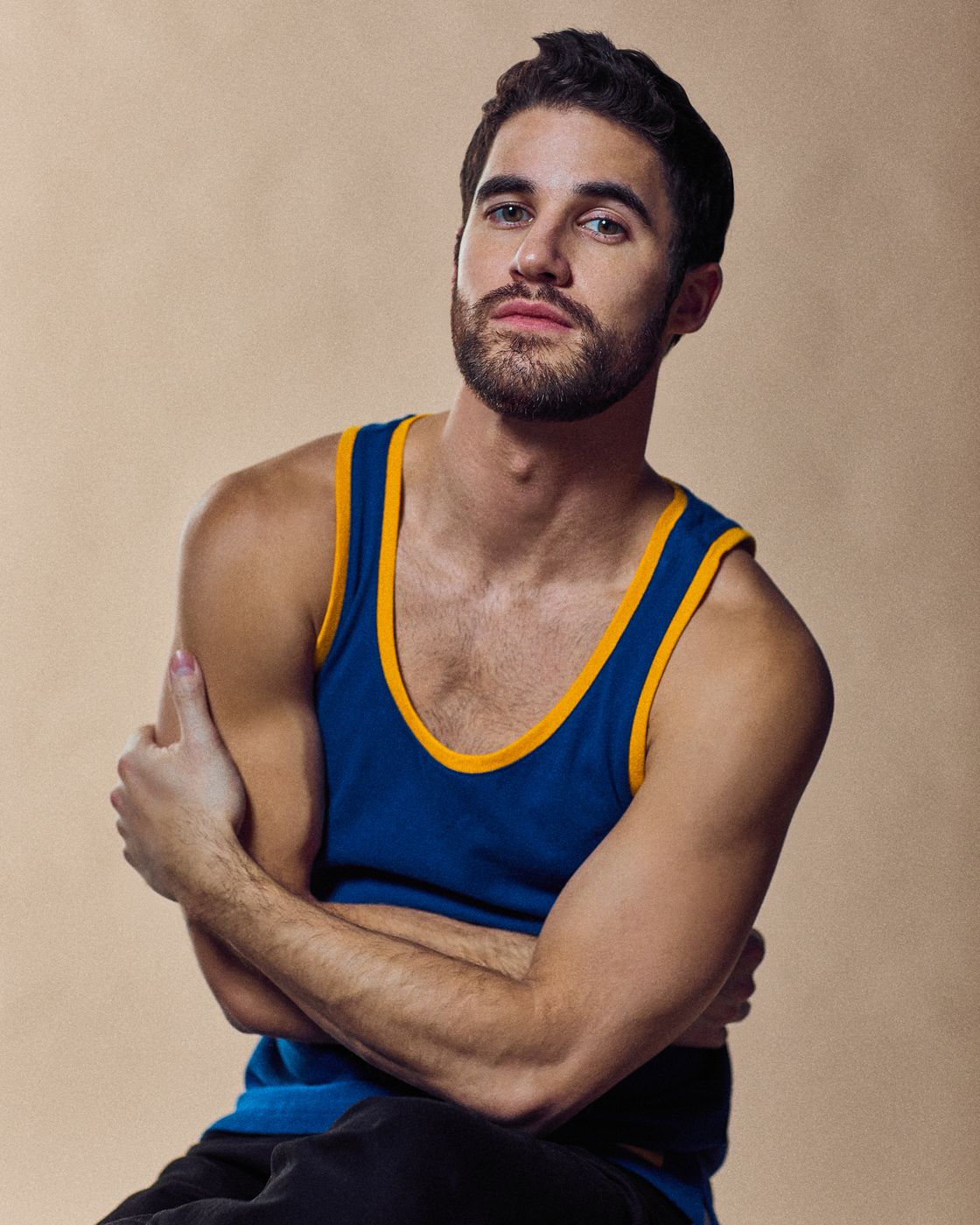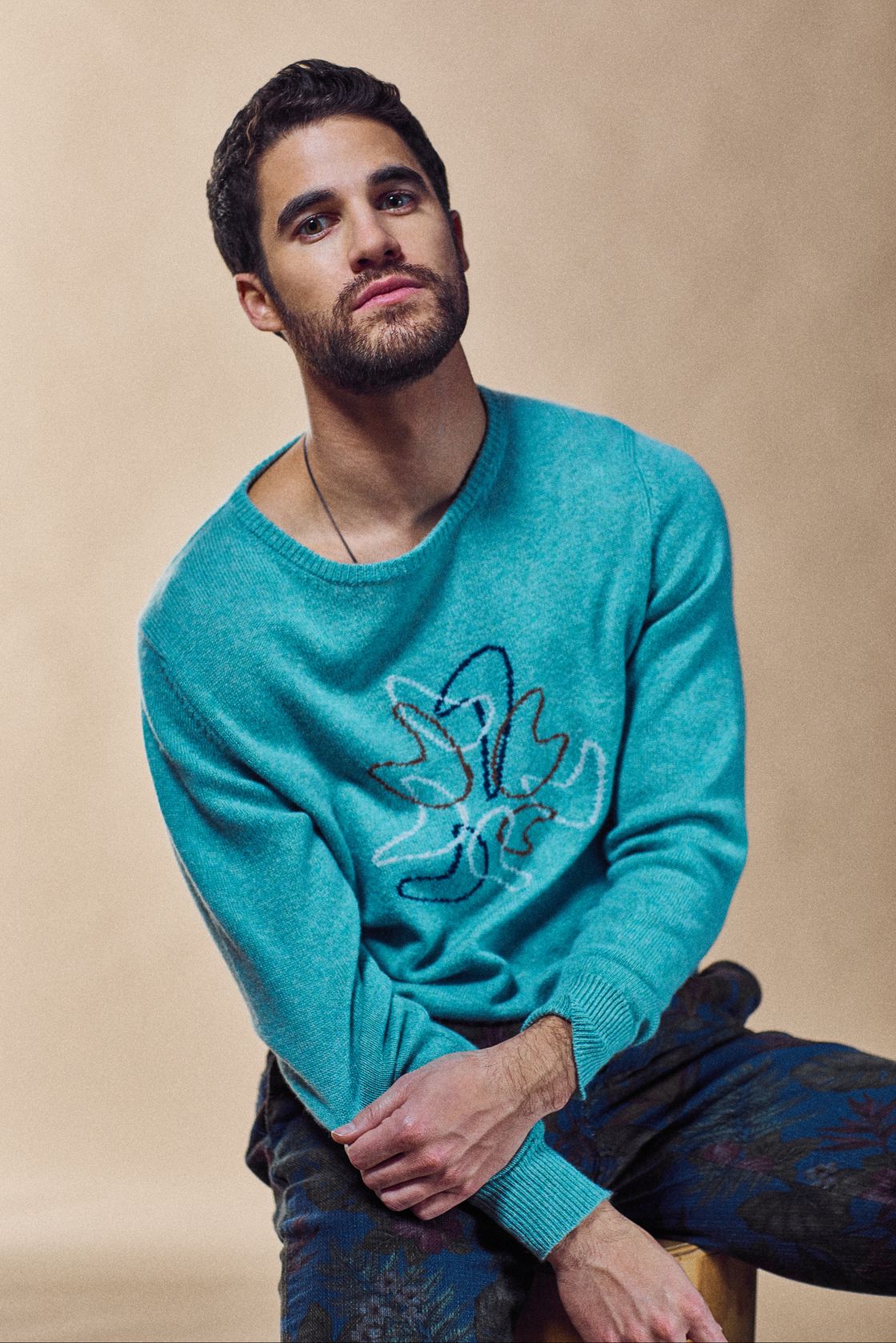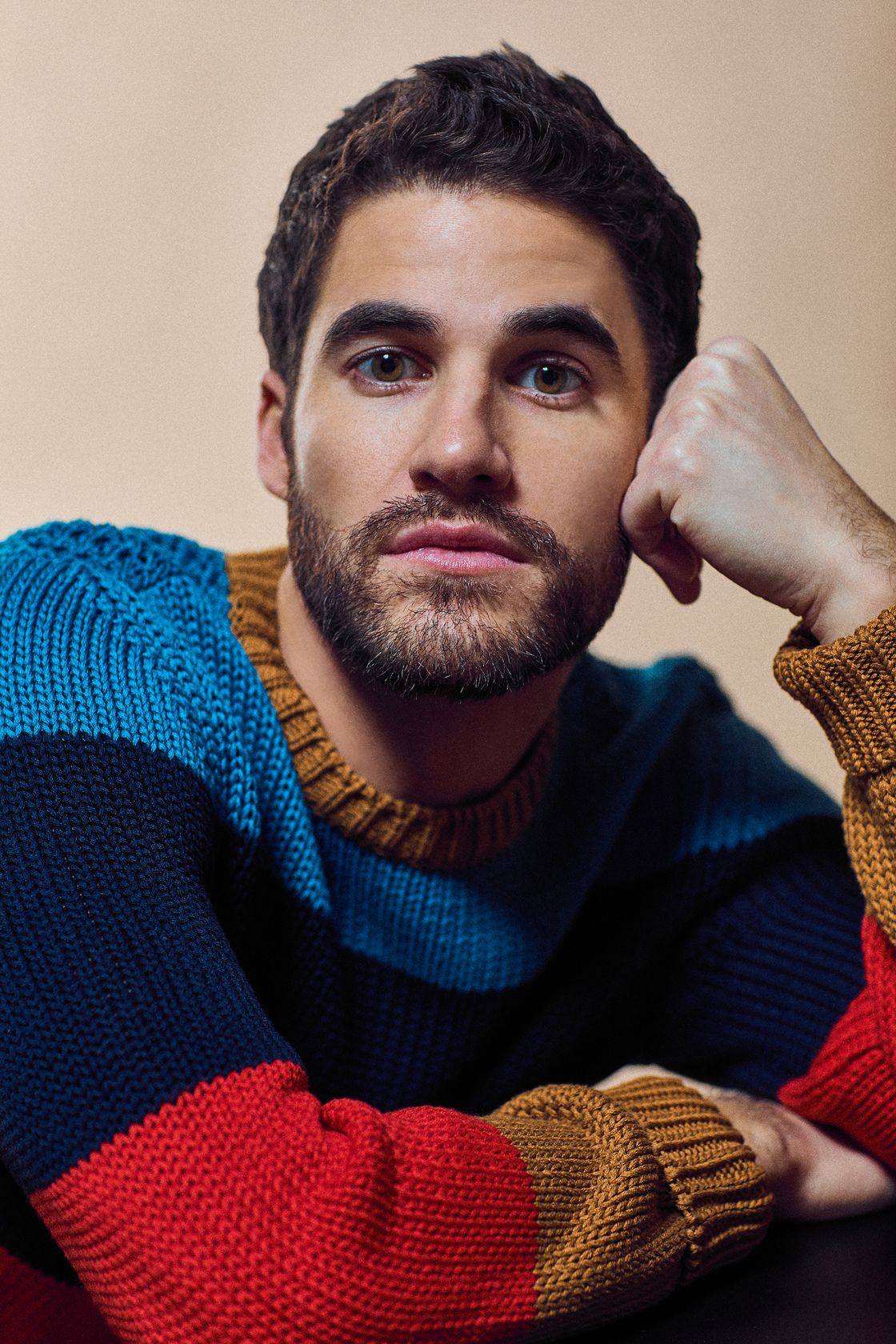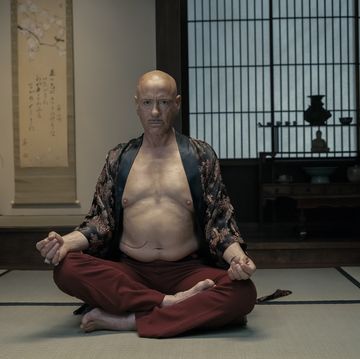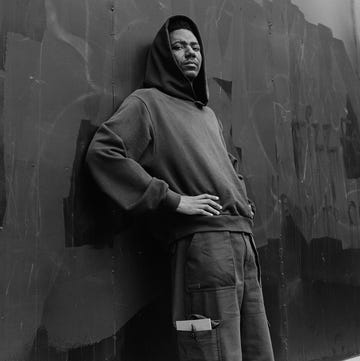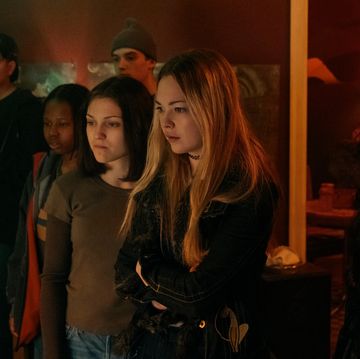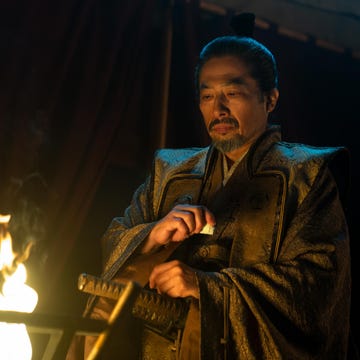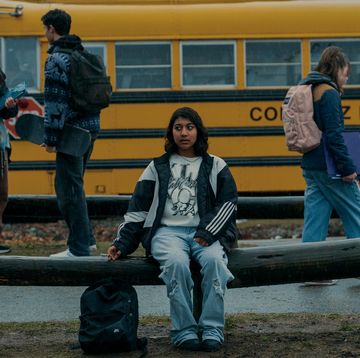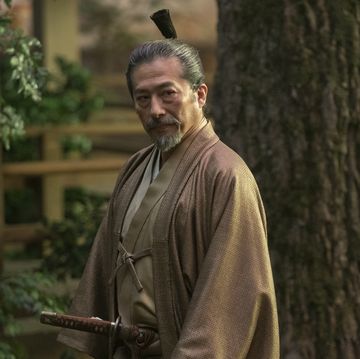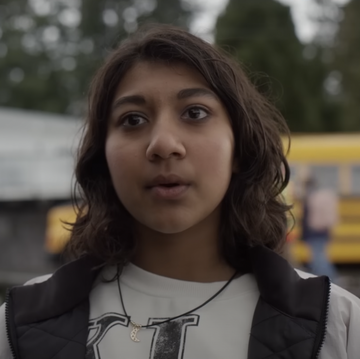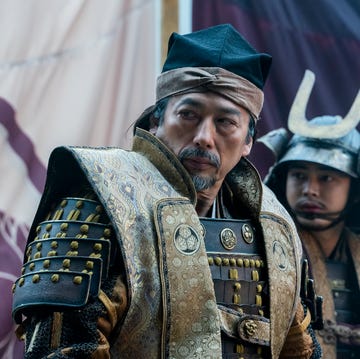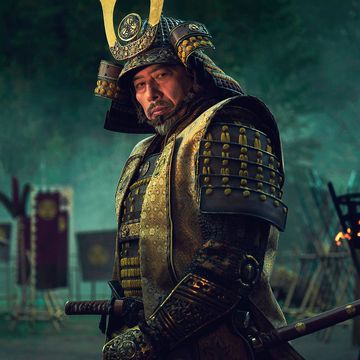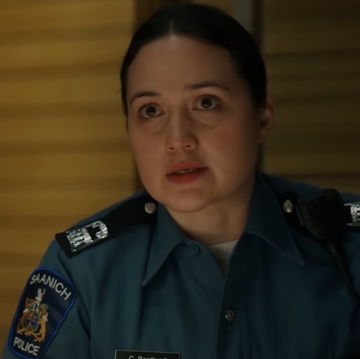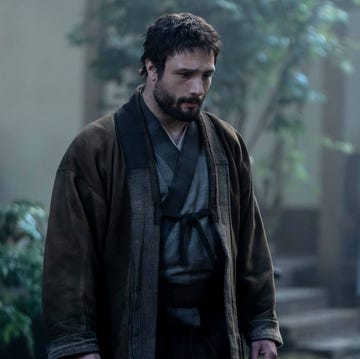Darren Criss has never killed anyone. In fact, it’s hard to imagine the 31-year-old actor so much as raising his voice at anyone given how disarmingly kind and solicitous he is in person. When he arrives for his photoshoot, he immediately learns the names of everybody on set; as various editors drop in, either to check in on the shoot or to gawk at the celebrity in our midst, Criss goes out out of his way to make introductions—impressively listing off everyone’s name in the room. But Criss has found more in common with Andrew Cunanan, the social-climbing narcissist turned serial killer he plays in The Assassination of Gianni Versace: American Crime Story, than he expected.
“People always ask me, ‘What’s it like to get into the mind of a killer?’” Criss says, slipping into a gravelly Movie Trailer Voice as we talk over coffee. “But you’re not doing that! I mean, a killer doesn’t get into the mind of a killer—they’re just existing. We boil it down to killing somebody and go, ‘I’ve never done that, so that’s definitely as far from me as possible.’ But the things that inform those decisions can be very close to who we are. We all have access to the same variety of emotions. You just ride them at a certain frequency, and it takes you to a certain place.”
That certain place, for Cunanan, was a nationwide murder spree spanning four states and five victims, the last and most high-profile being Versace in July of 1997. Prior to this, Cunanan had a reputation as a prolific liar, an opportunist who regularly changed his appearance and modified his personal history at whim to serve him in the moment. After dropping out of college in San Diego, Cunanan reportedly developed a pattern of dating much older, wealthier man who bankrolled his expensive tastes and gave him access to their social circles, charming and conning his way into a lifestyle far beyond his means.
Sweater and trousers by Louis Vuitton, sneakers by Converse, necklace by Miansai.
There are, Criss says, “a lot of similarities between us that I like to remind myself and other people of,” beyond the striking physical resemblance and biographical parallels (both Cunanan and Criss are half-Filipino and California natives). “What it is to want what you can't have—that I get. Who doesn't know what it's like to feel unloved, or want to rise above your station, or just on a very simple level be liked?”
It’s the latter that comes through most powerfully in Criss’s mesmerizing, profoundly unsettling performance: the sense that Cunanan needs to be not just liked, but adored. Underlying all of his tall tales—the lies about his wealthy upbringing and influential friends, the personas he adopts and discards—is a kind of naked desperation that puts the audience on edge even when nothing overtly bad is happening. He is, to put it generously, extra. And as the lies stop working for him, and more and more people begin to see through him, that neediness turns vicious.
I admit to Criss that through much of the series, my overwhelming feeling about Cunanan is not horror at his crimes, but rather a kind of intense secondhand embarrassment at his desperation. What becomes increasingly clear as the show’s reverse chronology reveals more and more of the pre-murder-spree Cunanan is that we all know a guy like this; he’s the guy who’s always doing just slightly too much. “That’s a great sign for me,” Criss responds, lighting up, “because it’s easy to just hate somebody; that’s a very simple emotion. But if you have embarrassment and awkward feelings about him, that comes on some level from a place of caring. You want this person to do better, and that’s what makes you cringe.”
One oft-quoted detail from Maureen Orth’s Vulgar Favors: Andrew Cunanan, Gianni Versace, and the Largest Failed Manhunt in U.S. History, the book upon which the show is based, is that Cunanan used to wear dimes in his penny loafers at school. It’s an affectation which Criss says he could easily imagine himself recreating at the same age. “I really reveled in being different,” he tells me. “I didn't want to be normal. I didn't want to be put in a corner. I know what it's like to want to stand out. Andrew had that too, but we had different reasons. He used it as a social statement, where I just liked the feeling of not being like everybody else. I think he did it to lord his status over other people; for me, it was a way to connect with people.”
I bring up a standout moment from this week's episode, “House by the Lake,” the fourth of the season. Cunanan has killed his first victim, Jeffrey Trail (Finn Wittrock), a man he considered a close friend, and has taken his soon-to-be second victim David Madson (Cody Fern) hostage. Madson was an ex-lover of Cunanan’s, and the object of his ongoing, intense, unrequited desire; in forcing him to go on the run with him, Cunanan lives out a delusional kind of happy ending. The pair stop at a roadside bar, where Aimee Mann sings a mournful cover of The Cars’ “Drive.” While Madson goes to the bathroom—and considers trying to escape through a window—we stay with Cunanan, in a rare moment of honesty. In an unbroken 90-second shot, we slowly pan in on Criss’s face as he begins to cry, watching Mann sing the song and taking in its lyrics (“Who’s gonna drive you home tonight?”). It’s an unsettling scene because of how moving it is, despite coming moments after we’ve seen Cunanan beat a man to death with a claw hammer.
“You just see a pained young man who's so afraid of being alone,” Criss says. “He’s taken David on this terrifying road trip, and there’s a moment in the bar where he’s not sure if he’s going to be left by himself. I was never scared or creeped out by any of the things Andrew was doing, but I was just so sad, to my core, and so heartbroken by this tragedy of a human being.”
But the moment in the bar is an aberration; the show is not generally trying to make you feel sorry for Cunanan. He shows a chilling lack of emotion through the rest of the episode, even when he ultimately shoots Madson dead, his romantic fantasies finally punctured. “If he can't have something, he has to take it,” Criss says. “If he can't have love, he literally has to take the life of his lovers; that’s what we see with the first two victims. With Lee Miglin, it’s his influence and power and also his hidden sexual identity, which Andrew wants to take away to humiliate him. With Versace, it was a bevy of symbolism: fame, wealth, glamor, success, love, and being out—all these things Andrew couldn't have.”
There’s a lot of self-loathing baked into Criss’s Cunanan, who uses period-appropriate bigotry as a disguise; in one early scene, he casually uses the F-word in a situation where he wants to pass as straight (“What are we supposed to call them?”) Later he promises his third victim, Miglin, that he will leave his body in a state that ensures he’s remembered as “a pansy.”
Windbreaker by Convere, sweatshirt by Champion, jeans by Todd Snyder, sneakers by PF Flyers.
“He was very good at using whatever information was available to him as weapons, in whatever situation it was,” Criss says. “In situations where it behooved him not to be gay, he would dismantle that notion, but where it would be beneficial—say, with older rich men—he used it to his advantage. I think he was a man of few allegiances, except to himself.”
Criss is clearly wary of veering too far towards sympathizing with Cunanan, and at one point notes his unease about the fact that he never reached out to any of his victims’ families. “I didn’t want to while we were doing the show, because I had to finish the work,” he says, clearly still conflicted. “But the weight of their experience weighed heavily on me. I felt a responsibility to them, because I don't want anybody to feel like their tragedy is now a pop-cultural commodity, and I hope they realize that we're trying to bring some kind of justice to the otherwise voiceless tales.” And it’s true that the show spends time telling the stories of Cunanan’s victims, and not just of their deaths. Episode Four features a flashback to Madson coming out to his father; Episode Five chronicles Trail’s experience in the Navy during the “Don’t Ask, Don’t Tell” era. Still, their families “weren’t contacted or consulted, and if I were them I couldn’t help but feel betrayed by the idea that we didn’t want to reach out.”
Sunglasses by SALT., trucker jacket by Levi’s, sweatshirt by Todd Snyder x Champion, watch by Timex
And then there’s the Versace family, who have made their feelings about the show abundantly clear in a pair of damning statements. Criss is sympathetic, especially in light of the vague parallels the show draws between Versace and Cunanan. “If a family member was taken from me, I wouldn't be very happy at all about their life being compared to the person that took it,” he admits. “That seems sickening, and I completely understand that, but the important thing is that we're juxtaposing a beautiful creator with a terrifying destroyer.”
Because the show depicts some known facts alongside a lot of necessary speculation—and because Cunanan is a liar—there’s a lot of deliberate ambiguity. The first episode depicts Versace and Cunanan on a date together at the San Francisco Opera (in reality, it’s up for debate whether they even met), which leads you to wonder whether this is reality, a version of reality spun by Cunanan, or a pure fantasy sequence. Even Criss and Edgar Ramirez (who plays Versace) were unsure. “As we were shooting it, I was like, Is this just in Andrew's head? We don't know! The grandeur of the show in general is almost like a machination of Andrew's brain. There's a beauty and a color and a sweeping, operatic feel to the show that feels like we're seeing it through the eyes of an unreliable narrator.”
Tank top and jeans by Calvin Klein Jeans
For all the commonalities he’s found with Cunanan, Criss is not remotely method, and he has no trouble getting out of character even on the darkest days of material. “Some people need to scream into a pillow and run off and do their thing and live with their character non-stop,” he says. “I am not one of those people, and sometimes I feel like a bad actor because I'm not. But I think for me, things live and die between action and cut, or lights up and lights out. I feel like if I live with something too long, then I cheat the immediacy of the moment.”
Over the years, Criss has amassed the kind of fan base that Cunanan could only dream of: devotees who have followed him from early musical theater work, his breakout role on Ryan Murphy’s Glee, to Broadway and beyond. “What’s interesting about having fired off in the advent of social media is that fans have really had the inside track on this journey,” he says.
That new kind of intimacy creates more of an investment and a feeling of ownership, not to mention a curious relationship where many of these people have now been in Criss’s life, actively, for a decade. “It’s cool to watch some of these kids grow up,” he says. “There’s people who I meet, young people who are now in the workforce, who say to me, ‘I just want you to know when I was 16, I watched your show and it really meant a lot to me.' It can’t help but give you pause, because that’s so much bigger than me or the show. I’m a part of your life? What an honor. But I'm also well aware of the idea that all this is fleeting. I'm waiting to wake up one morning and not see some of the same faces that I've been seeing for the past eight years at these events.”
The legacy of Glee has become a complex one, and Murphy—along with some cast members—has admitted that the show was often fraught behind the scenes. But Criss’s name never comes up in any of the stories about backstage drama or feuds, and he seems to have made it through unscathed. “The thing that kept me stable on Glee was that I came in after the fact,” he points out. “It was already a massive hit, and then I joined, so I had a little bit more of a bird’s eye view. I always felt like an outsider looking in, like, 'Wow, guys! I'm on Glee! How crazy is this?' I was aware of the animal going in.”
Sweater by Richard James, trousers by Incotex, necklace by Miansai
In what may come as a surprise to Glee and Versace fans, the latter is the first actual collaboration between Criss and producer Ryan Murphy. “I had never actually worked with Ryan before this,” Criss says. By the time he joined Glee in the second season, Murphy “had moved onto other things. One time somebody was sick and he came on for one scene, and it was the most I'd ever worked with him.” But Criss had known Murphy as a friend for many years by the time Versace came around and had watched from afar as Murphy evolved into FX’s powerhouse producer, raking in commercial success with the American Horror Story franchise and critical acclaim with The People v. O.J. Simpson. “We’ve always been very friendly, and had a lot of fun nights out together in Hollywood. But there’s a dissociation between the creative power that is Ryan and the guy I see at parties. This was the first time I really got to be creative and be a part of that process and see him build something from the start.”
Sweater by Louis Vuitton
Two days after Versace's premiere, Criss announced his engagement to longtime girlfriend Mia Swier via Twitter and Instagram. “It was a long time coming,” he says. “We’d waited a while before we announced it. I had a whole thing written, like, ‘Usually I don’t like talking about my private life...’ which I really don’t—I was really allergic to it for a while. Eventually I got over myself and realized that it’s just the best way to let people know.”
So 2018 is a banner year for Criss on many levels; though it’s early to start talking Emmys, it’s hard to imagine him not being a frontrunner for his revelatory performance. “We’ll see,” he says, downplaying awards buzz. “The success for me is that people are talking about it. But this is a moment for me, and I recognize that, because I've had one before. The fact that I've gotten another one from Ryan Murphy is not beyond my understanding, and I'm trying to enjoy it as much as I can. I feel like I'm very much on a precipice, so I'm excited to see who or what is in the abyss.”
Lead Photo: Jacket, tank top, and jeans by Calvin Klein Jeans.
